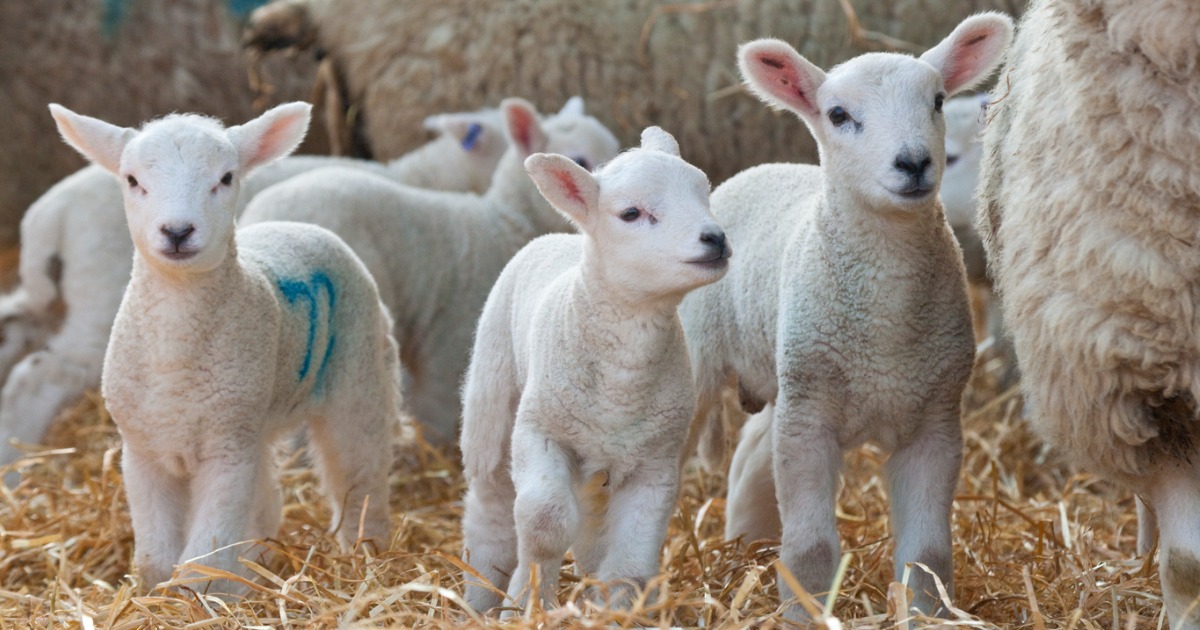Weaning Spare Lambs
Weaning can be considered a simple change from milk feeding to solid feeding but in truth it is a balancing act between maximising early feed efficiency and managing rumen development. When born, a lamb has a rumen but it is immature, undeveloped and incapable of digesting concentrates. The milk fed by-passes the rumen and enters the abomasum (the 4th stomach – this stomach acts in the same way as our own). At this stage, the nutrients supplied in the milk can be digested with over 90% efficiency. Meaning for every kilo of milk replacer you are putting in you are getting almost a kilo back in growth.
When to Wean
I would expect to see starter feed intakes beginning at around 12 days of age. The rumen can digest some concentrates from around three weeks of age, starch and sugars in the starter feed increase the rate of rumen development, so offer it as soon as you can.
Giving the best to your lambs
Offering good quality straw as roughage (in a rack separate to bedding) from one week of age increases the muscularity of the rumen wall and its capacity for fermentation – important for later in life when the mechanics of the rumen come into play further. You will be surprised how much straw they will eat.
It is also important to provide drinking water, the rumen is a liquid environment and requires water for development and digestion. The water from the milk portion of the diet is not sufficient as it by-passes the rumen and goes into the abomasum.
There are ways of encouraging starter intake:
- Positioning of the feeder - if you bottle feed or hang a feeder in the same place daily, position your starter feed as close to this spot as possible. If using an ad-lib feeder, place the starter feed as close to it as you can. Make this the ‘go to’ feed area.
- Make it accessible - ideally the feed should be up off the ground but at an easily accessible height.
- Keep it fresh - lambs will eat very little for the first few weeks especially when on an ad-lib system. Keep the feed topped up but not so much that some of the feed remains in the trough untouched for days/weeks.
- Palatability - choose a palatable starter.
- Reduce gorging - on ad-lib feeders change the milk to cold once good intakes are established. This reduces the likelihood of gorging as well as reducing digestive upsets through inconsistent milk temperatures.
Essentially your orphan lambs must be eating enough starter so that when the milk is removed, they can maintain their growth rate; bearing in mind the efficiency of starter digestion will be around 1/3 of milk digestion. Drastic changes may lead to disorders of the gastrointestinal tract.
Weaning can be achieved abruptly although using a step-down method better prepares the gut for solid feed digestion. Stepping the milk down by 25% initially can kick start higher starter intakes if you are worried, they are not high enough to initiate weaning. Do not keep lambs on intakes beyond 1L/day beyond six weeks as you greatly increase the risk of bloat.











